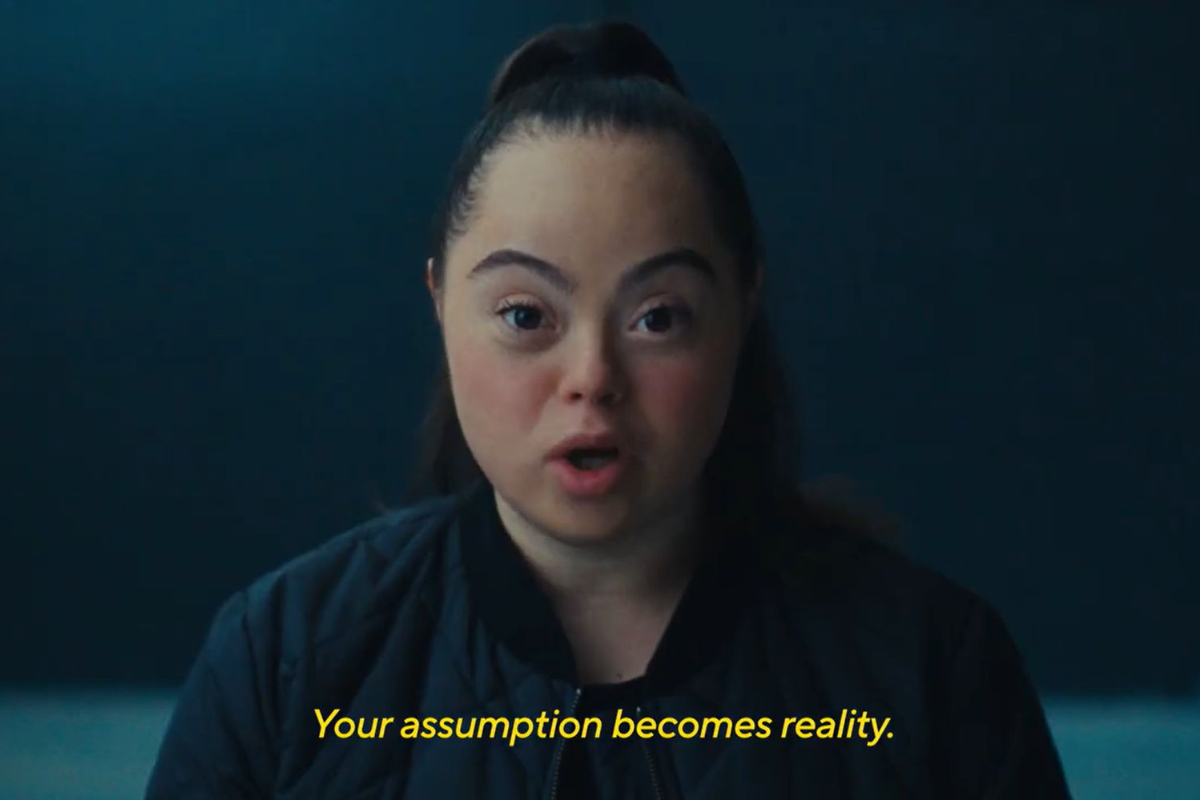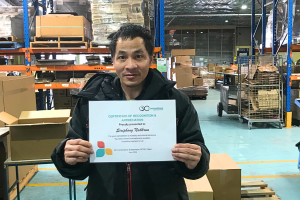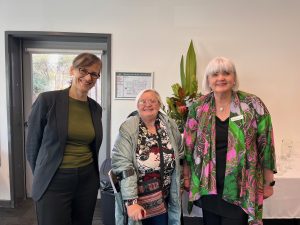What is Down Syndrome?
People with Down Syndrome have always existed, with the first historical case discovered over 5000 years ago. In the 19th century the genetic disorder was named, and soon afterwards, the medical cause of the condition was uncovered; an extra chromosome on the 21st pair.
Nowadays, Down Syndrome is widely known and researched. Inclusion has progressed in the last decade, and young people with Down Syndrome usually move through their schooling years alongside their non-disabled peers. They work, create their own families, and live longer lives.
But those with Down Syndrome still face barriers today. The ongoing journey towards inclusivity, in every part of our modern society, calls for us to question our own assumptions on the capabilities of people with Down Syndrome.
It’s about confidence and opportunity, and how they intertwine.
Can people with Down Syndrome live normal lives?
Research shows that we are largely affected by social and environmental influences during childhood development. As we grow and learn, we begin to make our own decisions, choose the spaces we want to exist in, take advantage of social opportunities and build our own personalities.
This progression is just as vital for people living with Down Syndrome. Learning how to make decisions and take control of social and contextual environments is powerful, but many people with Down Syndrome are restricted from participating and decision-making. These factors are crucial in developing personal confidence and security, which in turn has a strong effect on competency and independence. It’s a self-fulfilling prophecy; limiting someone’s sense of self, their confidence, limits their capacity to achieve.
What are people with Down Syndrome like?
People with Down Syndrome are passionate, kind and have a great sense of humour. They are headstrong and friendly, but face many assumptions in their daily lives – assumptions about what they can do, who they can be, and how they’re meant to live. On Global World Down Syndrome Day, Canadian agency Coordown released a promotional video called “ASSUME THAT I CAN” to rebel against assumptions that limit the movement and ability for a person with Down Syndrome to exist in society.
“If we have positive assumptions about people with Down syndrome, we'll give them more opportunities in their schools, workplaces, relationships and activities.”
CoorDown
In the video, a young woman with Down Syndrome orders an alcoholic drink at a bar, but is given a soft drink instead. The bartender made the assumption that she shouldn’t have alcohol, therefore limiting her choice and opportunity. In another case, parents of the young woman with Down Syndrome assume that she can’t live independently, so she doesn’t know that she can. The assumptions affect her confidence and the ability to see herself in potential futures.
Who are the most famous people with Down Syndrome?
People with Down Syndrome are gaining more and more representation worldwide by actively participating in roles that were once restricted. Spain elected the first Member of Parliament with Down Syndrome, Mar Galcerán, and Sofia Jirau became the first Victoria’s Secret model with Down Syndrome.
As more opportunities are created, and there is more Down Syndrome representation, our society progresses towards a more inclusive, diverse future. People with Down Syndrome see what they can aim for and achieve.
If we believe that people with Down Syndrome can do anything, then we encourage them to exist without limits.





